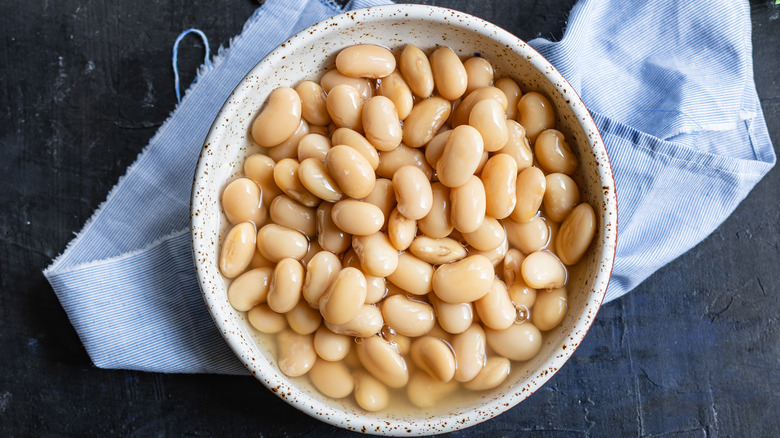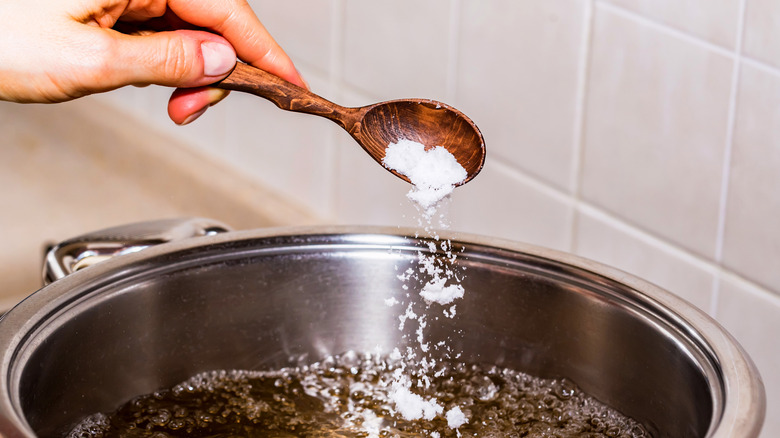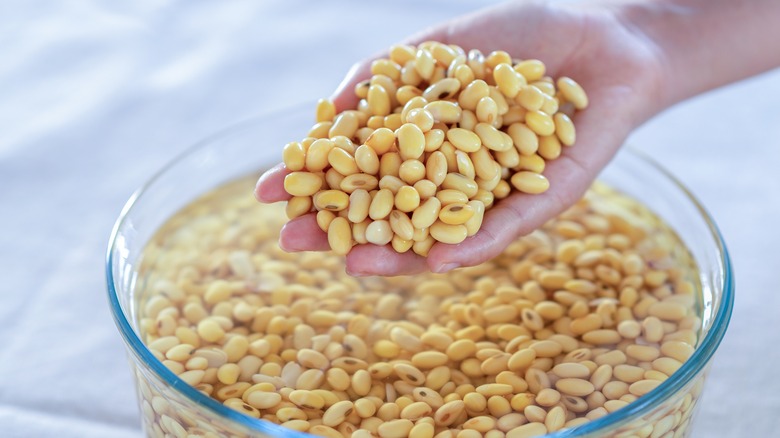You're Probably Salting Your Stovetop Beans At The Wrong Time
It's no secret that salt is a crucial culinary resource and has been for an incredibly long time. And while knowing how much salt to add is a crucial part of cooking, its just as important to know when to add it. This is particularly true when it comes to stovetop beans — only it turns out, the traditional advice may be all wrong. Much as different sources will tell you either to pre-salt your scrambled eggs or only add salt once they're cooked, when to salt your beans is a bit of a hot button cooking issue.
The longstanding advice with salting beans was pretty simple: Don't salt them at all until they're cooked, or at least until they're well into the cooking process. The theory here has been that salting beans earlier will keep their starches from breaking down, toughening them up and resulting in far-too-hard beans. The problem is, this classic advice seems to be wrong. Multiple experiments have shown that soaking your beans in salted water, as well as adding a pinch of salt to the cooking water at the beginning, actually lead to a better finished product.
Salting beans earlier leads to better results
There are plenty of reasons your beans might not soften when you cook them. You could be cooking your beans in hard water that contains too many minerals, or the beans might be too old. You also might have added an acid to the beans too early in the cooking process. What isn't causing that issue, though, is salt.
According to science, soaking beans with salt water makes them even softer. Sodium ions from salt are relatively weakly-charged, and during soaking, those ions wind up replacing some of the much more strongly-charged calcium and magnesium ions in the beans' skin. This in turn allows more water to penetrate that skin, softening the beans more effectively, but not penetrating so deeply that they turn the inside of the beans mushy. Unsalted beans, meanwhile, tend to absorb more water all the way through, and therefore burst at much greater rates. Salting the cooking water, meanwhile, seasons the beans all the way through, making them more flavorful.
Adding flavor to your beans
There is one note of caution here, and that's not to add too much salt to either water. This isn't because it'll keep the beans from softening, but because it's pretty easy to add too much and make your beans too salty. The ideal ratio for your soaking water is 1 tablespoon of kosher salt to 1 quart of water, while you should generally only add a pinch of salt to the cooking water.
You can also cook your fresh beans in stock, which can add a great depth of flavor that you can't get from water. You'll want to use unsalted stock so the same salt-to-water ratios should work, as broth is generally salted. Herbs, particularly things like rosemary, thyme, and sage, are also a great addition to your cooking liquid, as they'll infuse the beans with another level of flavor without messing with the salt levels. You can also add kombu, a type of seaweed used in the unique Japanese soup stock known as dashi. In addition to granting your beans umami depth, kombu can actually make bean texture even softer than just using salt.


